- Home
- George R. R. Martin
Knaves Over Queens Page 3
Knaves Over Queens Read online
Page 3
‘Chandra, if we do not take control of this ship, we will be doomed. I need you to lend me Paddy.’
‘Don’t I get a say in the matter?’ Paddy asked.
‘Not if you want to save your wife’s life and yours into the bargain.’
There was a silence broken by Chandra. ‘He is right, Paddy. Go help him.’
Paddy nodded, then bent to kiss Chandra until she finally pushed him away with her elephant feet. ‘Go, my darling. Go. Save us both.’
Paddy nodded and ducked out of the cabin. Foxworthy followed, not ducking but feeling the doorframe was nearer. In the hallway he asked, ‘Am I taller?’
Paddy glanced at him. ‘Maybe, but I think you have bigger problems. The stone’s spread to your neck.’
Foxworthy felt with his still-human left hand, finding that what Paddy said was the truth. ‘Bugger,’ he swore. He shook his head then led the way onwards. His right eye burned and then his left as the petrification swept over them, but his vision sharpened to crystal clarity so he didn’t complain. They made their way back to the bridge past vistas of surreal horror, worse than anything he’d seen in the death camps save in their sheer multitude.
The only sight that truly disturbed Foxworthy beyond what he’d already seen was what he glimpsed in the first class children’s playroom. There, among the twisted bodies, stood a pretty rocking horse with a real horsehair mane and tail, but rocking by itself, with no child riding it. But then he realized the rocking horse was looking at him with a child’s brown eyes, pleading, weeping, rocking faster and faster as it tried to follow them but could not because its horse’s hooves were fused to curved runners bent from human bone.
By the time they were back at the bridge, the petrification had become complete and Foxworthy not only stood taller than Paddy, but his knife-edged flint feet had cut themselves free of his shoes and his uniform was ripped at the seams.
Gully, the three-headed midshipman, snapped a salute. ‘Captain Flint!’
‘At ease,’ Foxworthy said … or tried to say. His voice was gone, and only a stony whisper escaped his lips. He looked down at the motley crew that Gully had assembled. Well, looked down on all but one. Gully’s rescuer was there, his torso still three feet longer than it should be, with his left arm hanging down to his knees and his right arm hanging to the ground. His head was identical to James’s three. The two were identical twins … or at least had been until this afternoon, and quite young. ‘Brothers?’ Foxworthy assumed, his voice hoarse and whispery.
James Gully pointed his thumb up at his telescoped former twin and his side heads nodded while his central head said, ‘Yes, sir. That’s John.’
Foxworthy surveyed the rest of his men. Along with the twins were four other crewmen and two gentlemen from first class. One of the first class gentlemen had skin and hair striped vibrantly blue and gold like a tropical fish while the other appeared untouched. Suffering the opposite horror to James but still having his shirt ripped open, one of the crewmen had no head but a giant face upon his chest, exactly like one of the monstrous men found in foreign lands in medieval manuscripts but never seen until now.
The other three crewmen appeared fully human, and in fact, the mechanic in the grease-stained overalls was almost impossibly handsome, tall, with Grecian features, wavy golden hair, and a figure so finely sculpted that it made even a mechanic’s rags look fashionable.
‘Ugly Harry?’ asked Paddy. The Adonis nodded sadly. ‘Damn,’ Paddy swore, ‘at least someone found a prize in the bottom of Pandora’s Cracker Jacks.’
‘You don’t understand.’ Handsome Harry had a gorgeous voice but a thick Cockney accent. ‘I’ll never find a woman who’ll want me. My face may look nice now, but I’m a freak. My navel’s disappeared. I ain’t got no nipples neither.’
‘You’ll find women who can overlook those flaws,’ Paddy reassured him.
‘No,’ Harry moaned wretchedly, ‘I’m sexless as a doll!’
‘Considering the alternatives, you are still very lucky,’ Foxworthy told him, ‘but let us compare horror stories when we are not in danger of dying.’ He glanced at John Gully. ‘Has everyone been rescued who went overboard?’
‘Yes, sir.’ John Gully sounded exactly like his brother James.
‘Who’s tending to the wounded? Has the ship’s doctor survived?’
‘The doctor and the surgeon are both dead, but a couple of the nurses are fine, for now, sir,’ John Gully reported. ‘They’re tending to the victims.’
‘Some on the wireless said it’s an alien plague,’ his brother’s leftmost head told him, then the right one added, ‘It’s all over New York.’
‘Sir,’ added the middle head.
Foxworthy exchanged a glance with Paddy, but everything that could be said in their defence did not change the fact that they’d been wrong. ‘What’s the chance it’s a Nazi gas?’ he asked. ‘Do we have someone on the radio to find out?’
‘Everyone in the radio room’s dead, sir. It’s like the Blitz.’
‘My family survived the Blitz, but they didn’t survive this,’ said a girl’s voice as Jillian Fisher stepped onto the bridge. ‘Bertie just died. Muriel too. Mama died at the start.’
‘All of them, Jillian?’ asked Paddy.
‘All of them, Mr O’Reilly,’ said the girl. ‘There are horrid spiders that used to be parts of Robert, but they’re just spiders. Frankie’s a statue, but not alive.’ She glanced up. ‘Brigadier Foxworthy?’
‘That’s Captain Flint,’ James corrected, but Foxworthy nodded and said, ‘Yes.’
‘What do I do now?’
‘Go and help the nurses. I’ve no time to play nursemaid and we need to get the radio working.’
‘I’m clever with mechanical things,’ she offered. ‘I’ve taken apart a crystal set.’
‘I could do with some help,’ Handsome Harry admitted.
‘Then you have your assignment,’ he told her, then asked John Gully, ‘Do we have enough fuel to return to England?’
The rightmost head checked a gauge. ‘Barely, sir,’ he reported, ‘but we could make it with the currents.’
‘Then let’s do so,’ Foxworthy commanded. ‘This is Mr O’Reilly. I’m deputizing him as my second-in-command. I feel an urgent need to sleep, and if I do not return in the morning, he is your captain.’
‘Aye aye, Captain Flint!’
When Foxworthy woke, he found his grey legs dangling off the bed that he’d broken. When he stood up, he was hunched over against the ceiling, like Philip de la Beche crammed into his crypt. He stood over seven feet, if not closer to eight. His uniform lay shredded.
He was also craving Scotch, and saw no reason to deny himself given the circumstances. He tore open his steamer chest. The bottle of Glen Grant Alice had slipped him as a parting gift tasted like nectar and he drained it. Then he realized he’d bitten off the bottleneck too. But the shards didn’t cut his mouth, only felt like a mouthful of boiled sweets, but tasting savoury, like lobster lozenges as they melted.
Foxworthy regarded the broken bottle with horror, but still swallowed. Then he belched, a small gout of fire shooting out of his mouth like a dragon. Or a demon. Or John Ever Afraid returned from Hell.
He glanced at the dresser mirror. His face still looked like his face, if larger, but sharper, more chiselled, as if a brutalist artist had hewn his portrait from solid flint, down to the waves of his hair. His eyes, always deep-set, were now pits to the fires of Hell, flames dancing in their recesses. But when he rubbed them in horror, he found he still blinked, and that his eyeballs were now made of some transparent mineral, like isinglass in the windows of a stove.
His teeth were like diamonds as he took another bite of the delicious bottle. Then he stopped himself. ‘Oh Alice,’ he whispered, ‘what will you think of me?’ He flung the bottle away, glass smashing against the panelling. Then he gritted his teeth, sparks flying from his lips like spittle. ‘Kenneth Foxworthy,’ he told himself, ‘you are a man, not a
monster.’
His reflection mocked this lie, the mask of Hades looking back at him, but Foxworthy refrained from doing anything so childish as to smash the mirror … or eat it.
Instead he regarded the rest of himself, the jagged points of knapped flint that formed his chest hair yet still felt soft when he smoothed it down with stone fingers, the other details, great and small, transmuted from flesh to the pinnacle of the flint knapper’s art. If he’d come upon himself in a gallery, he’d have thought the sculptor madly talented and the statue’s nudity unremarkable. But he was not art, he was a man, and the ruined bed once used by Churchill still had a bedspread of good English brocade. Foxworthy slit a hole in the centre with the flint knives that were now his fingers and donned it as a short kaftan, pinning the sides with his army pips, refusing to eat them like fruit pip sweeties no matter what they smelled like.
He did refill his pipe. The smoke tasted even better than before, and smoking it made him feel like a man, which was something Foxworthy desperately needed as he hunched out of the door and went to explore the ship of horrors of which he was now in command.
‘Captain Flint!’ The man who greeted him on the bridge was not familiar to him. He looked like James Gully, with only one head. For a moment Foxworthy assumed the twins were actually triplets and he was speaking with a third brother … until the man’s legs grew at least two feet, his trousers becoming knee breeches.
‘John Gully, I presume?’
‘Or “Lookout” if you prefer, sir. I can see as far as a telescope too, and when I stretch out people are saying “look out” so …’
He looked sheepish.
‘How long have I been asleep?’
‘Two days, almost three. We—’ He paused, his throat catching. ‘We thought you were dead, sir. Seaman Lawrence died. Wheildon too. And Mr Philips … we … we had to kill him … it …’
The cadet didn’t say whether this was for mercy or self-preservation. ‘My name is actually Brigadier Foxworthy, but I suppose “Captain Flint” will suffice.’ He sighed. ‘Any good news?’
John nodded. ‘Don’t know how she did it, but Miss Fisher got the radio working.’
‘That little girl?’
‘Said she was clever at mechanical things.’ He gave a weak grin. ‘Have you eaten anything, sir? We’ve had to pull everyone from the kitchens to keep the ship running, but we have cold rations: apples, cheeses, dried sausage—’
‘I do not seem to need food any more,’ he interrupted. The foods as the boy listed them made Foxworthy feel nauseous. ‘Where’s Paddy? I mean, Captain O’Reilly.’
The stilt-legged boy bit his lip.
‘Is he alive? Did something unspeakable happen to him?’
‘He’s likely to die,’ said a girl’s voice, ‘and so am I.’ Jillian Fisher came onto the bridge, her grave expression heightened by the dark circles under her eyes. She’d changed from her girl’s party finery to a young woman’s green velvet dress a few sizes too large.
Foxworthy reached out his hands but then stopped when he saw the stone knives that were his fingers. But John Gully dropped to his normal height and lower, his stilts compacting to stumps, and he hugged her. ‘It’s all right,’ he told her. ‘It’s going to be all right.’
‘No,’ she sobbed. ‘It’s not.’
Foxworthy felt helpless. ‘I don’t understand …’
Jillian eventually dried her eyes and pushed away from Gully. ‘Harry and I finally got the radio to work, and we found out what happened. It is an alien plague. Mr O’Reilly already worked out the plague part because his tigers weren’t touched. The Americans are calling it the Wild Card Virus.’
‘Wild Card?’
‘From poker,’ she explained. ‘You call a card wild and it can be anything, and you make a virus wild and it can be anything too, from the sniffles to turning a man into King Neptune. Nine times out of ten it kills you, and of those who survive, nine out of ten are turned into something horrid.’ She grimaced. ‘No offence.’
‘The lucky ones get something good, even if it’s not what they wanted.’ John gestured, extending his forearm by three feet.
‘Then why are you afraid you’re going to die?’ Foxworthy asked Jillian.
‘Mr Philips changed when he heard the news from New York,’ John said, pulling his arm back in and shuddering. ‘We all thought he’d been spared.’
‘I’m sorry.’ Foxworthy’s heart felt as heavy and black as the stone it undoubtedly was. ‘How far are we from England?’
Gully squinted out of the window, his neck extending several inches. ‘Not far at all, Captain Flint. We won’t win the Blue Riband for passage west, but we should break the speed record east at least from where we were.’ His neck went back to its proper length while his legs extended, keeping his head at the same level, and Foxworthy saw the grey irises of the boy’s eyes whirl like spyglass lenses. ‘The Queen Mary never had King Neptune to help with the crossing before. We should be in Southampton in a few hours.’
‘We’ve radioed ahead,’ Jillian said. ‘They want us to anchor offshore for quarantine. When they’re sure it’s safe, they’ll send doctors, maybe take us to London Hospital.’
Which was hours by train. Foxworthy felt an awful premonition in his stony heart, made worse by the fact that he had seen this story before: Three ships had gone down in Lübeck’s harbour, seven thousand lives lost.
All the ritual phrases had been said: errors were made, an unforeseeable tragedy, a sad, sad day, etc. Hands that were wrung in one instant had been washed the next.
It wouldn’t be an RAF bomber. Too blatant. Maybe a stray mine, something that could be denied. Or a torpedo from a captured U-boat. The Nazis had been trying to sink the Queens for years, but they were too fast. But anchored off Southampton for an indefinite time? The Queen Mary would be a very large sitting duck, and to abuse the bird metaphor further, it would kill two birds with one stone to sink the plague ship and blame the deed on Nazis who’d flown south to Argentina.
Churchill would have done it quickly. Attlee? It might take a few more days, but Foxworthy knew what foul deeds could be contemplated then ordered for sake of security and safety. He felt a stone-cold certainty now. ‘That will not be happening,’ he decreed. ‘We will go straight to London, closer to the hospital.’
‘Why?’ asked Jillian. ‘They were very clear.’
He told them, glad for the moment for his new whispery voice. They were appalled, but not disbelieving. They’d been through the war themselves.
‘Where do we go, sir?’ asked Gully.
‘The further in, the better. The Isle of Dogs if we can make it. We can be quarantined, but in London, they dare not sink us. They won’t risk plague victims fleeing into the city.’ He glanced to John. ‘Our King Neptune – can he talk?’
‘No,’ said Gully, ‘but Lieutenant Waters taught me semaphore.’
‘Good. Then let us break that record. To London.’
The Thames flooded its highest since 1928. Ships fled the Queen Mary, but those vessels too slow to avoid the onrushing ocean liner found the watery enormity of Lieutenant Edward Waters rising up, but with longer, wilder, literally flowing hair and whiskers, not King Neptune but Father Thames as depicted by Gustav Doré. The crowned titan pushed the ships out of the way with a far more defined set of translucent hands.
Around the bends they went, past Canvey Island and Cliffe Pools, past Gravesend and Grays, past Purfleet and the Dartford Marshes, past Erith, then around the bend to the Isle of Dogs, straight to the infamously noisy bascule bridge miraculously spared by the war. Father Thames reached into his river and pulled out a geyser shaped like a trident, sweeping cars off the bridge and down Manchester Road each way, like a croupier clearing chips off a gambling table.
The drawbridge began to rise, groaning mightily, but it soon became clear that the bridge’s aperture was far smaller than the Queen Mary’s beam. Her draught, however, was narrower. Father Thames dropped his trident bac
k into his river where it dissolved into bubbles and put his watery arms under the Queen Mary and lifted, sloshing right, like a man attempting to manoeuvre an awkward parcel through a narrow gate. He himself stepped through the north end of the bridge, a giant man-shaped wave crashing over it in slow motion, then set the Queen Mary down on the other side.
The ship washed into the lock leading to the West India Docks, everyone aboard clutching the railings. Sparks flew from Foxworthy’s fingers as he gripped the rolled steel joist beside his head, then he ducked down to see out of the window. Lieutenant Waters stood, tottering, thigh-deep in the river, fluid leaking from his sides where the bridge had passed through him, not so much a wave passing over a rock as a hot knife cutting through gelatine. With a look of distress in his swirling blue eyes, he dissolved into water. Foxworthy braced himself as the wave slammed into them.
Sparks flew, people screamed. ‘Aiyeee!’ wailed Chandra from her wheelchair, Paddy behind her, bracing it. ‘O wise Varuna, Ruler of all the Waters, do not let your most blessed and faithful servant perish!’ She raised her elephantine stumps in praise. ‘I have failed in my duties to Ganesh and Kali, and for that I accept my rightful punishment, but heal him! Lend him your strength! His name is your name! His fame is your fame! May the Waters heal and be praised!’
Tears flowed down her cheeks, staining the elephant hide of her once-beautiful face, while Paddy laid a comforting still-human hand on her shoulder.
Jillian Fisher was also crying, but not so much as the Gully twins, bawling from all four heads, and Handsome Harry and the headless crewman whom Foxworthy had never learned the name of had anguished expressions on their handsome and horrible faces.
Foxworthy stood like a stone. This was not the first time he’d seen a brave man die, nor, he feared, would it be the last. But then the waters of the West India Docks’ outer lock began to boil and bubble like something out of Shakespeare’s plays.
‘Praise Varuna!’ Chandra cried, waving her stumps to the Thames. ‘Praise the blessed Waters!’
A wave rose up, frozen like the tip of an iceberg, then two more on each side and two again, the tines of Father Thames’s crown as Lieutenant Waters rose up even larger than all his previous manifestations, a watery titan swelling with the inrushing tide into an aqueous colossus.

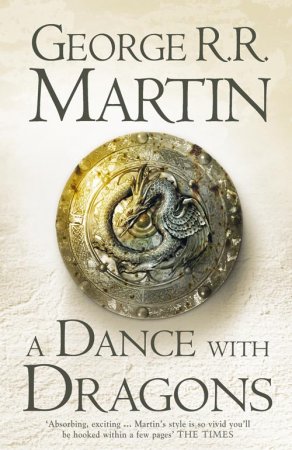 A Dance with Dragons
A Dance with Dragons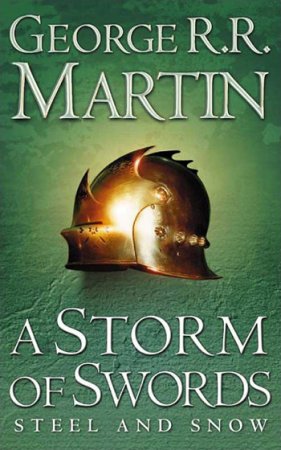 A Storm of Swords
A Storm of Swords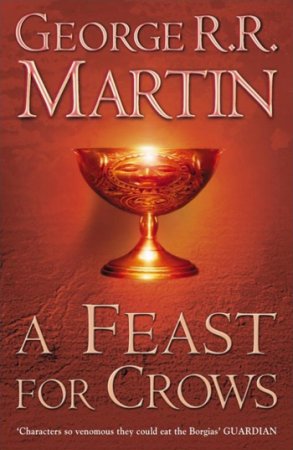 A Feast for Crows
A Feast for Crows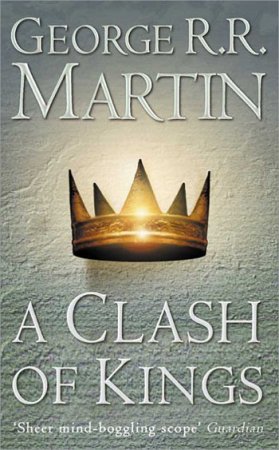 A Clash of Kings
A Clash of Kings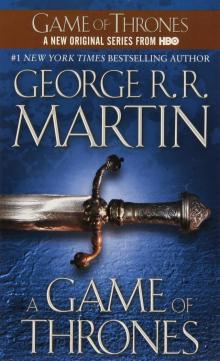 A Game of Thrones
A Game of Thrones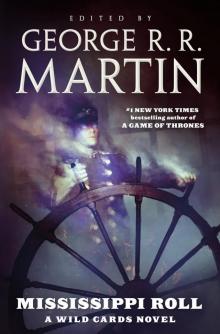 Mississippi Roll
Mississippi Roll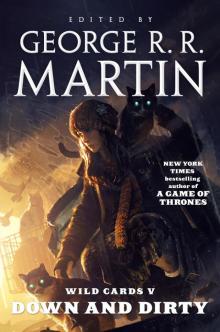 Wild Cards V: Down and Dirty
Wild Cards V: Down and Dirty Busted Flush
Busted Flush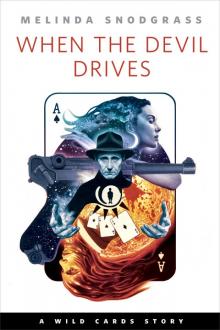 When the Devil Drives
When the Devil Drives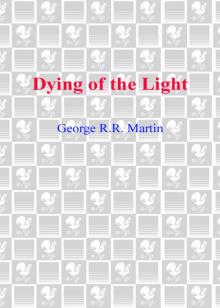 Dying of the Light
Dying of the Light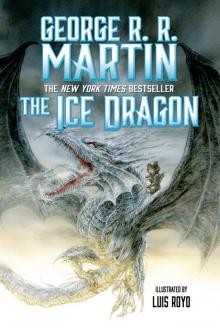 The Ice Dragon
The Ice Dragon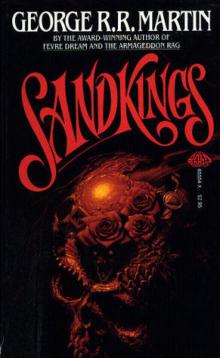 Sandkings
Sandkings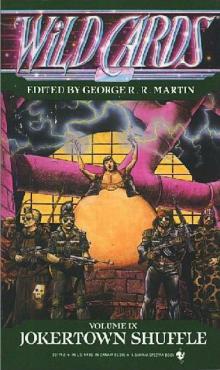 Jokertown Shuffle
Jokertown Shuffle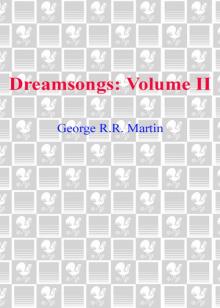 Dreamsongs. Volume II
Dreamsongs. Volume II Deuces Down
Deuces Down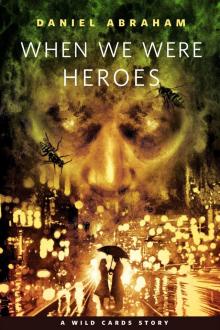 When We Were Heroes
When We Were Heroes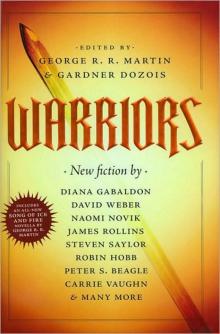 Warriors
Warriors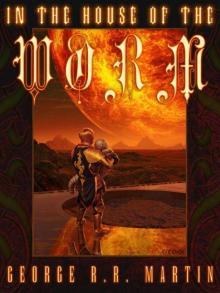 In the House of the Worm
In the House of the Worm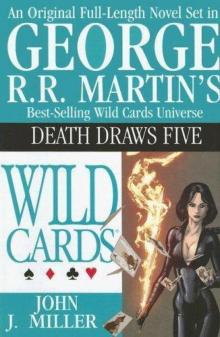 Death Draws Five
Death Draws Five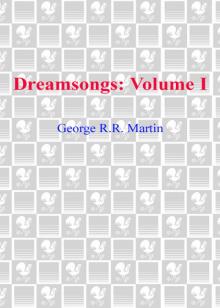 Dreamsongs. Volume I
Dreamsongs. Volume I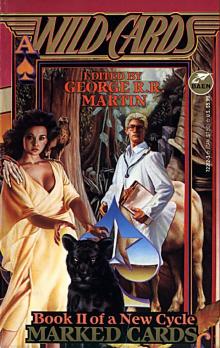 Marked Cards
Marked Cards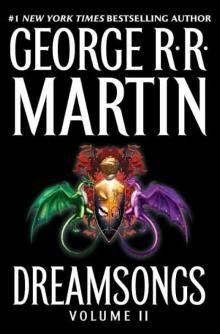 Dreamsongs
Dreamsongs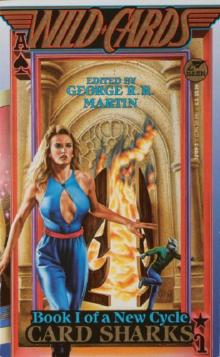 Card Sharks
Card Sharks Dangerous Women
Dangerous Women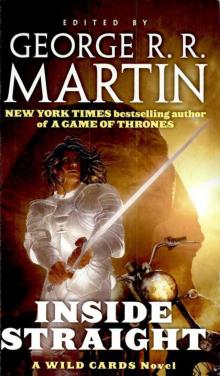 Inside Straight
Inside Straight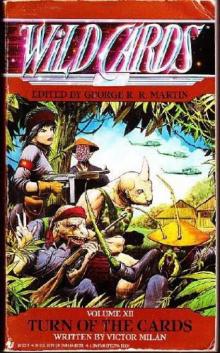 Turn of the Cards
Turn of the Cards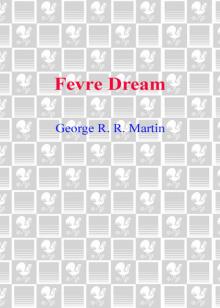 Fevre Dream
Fevre Dream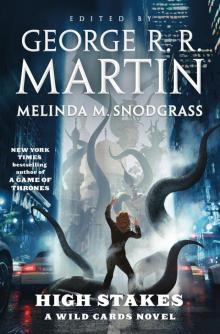 High Stakes: A Wild Cards Novel
High Stakes: A Wild Cards Novel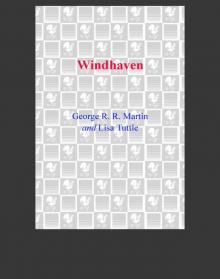 Windhaven
Windhaven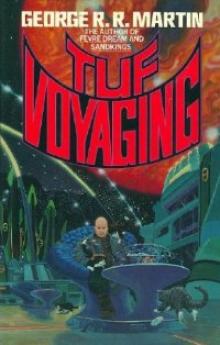 Tuf Voyaging
Tuf Voyaging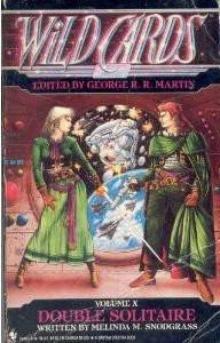 Double Solitaire
Double Solitaire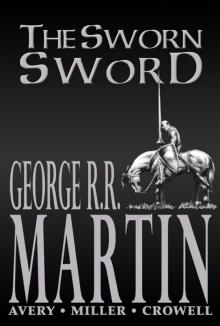 The Sworn Sword
The Sworn Sword Low Chicago
Low Chicago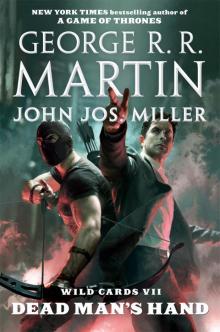 Dead Man's Hand
Dead Man's Hand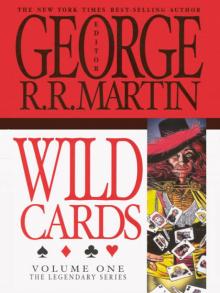 Wild Cards
Wild Cards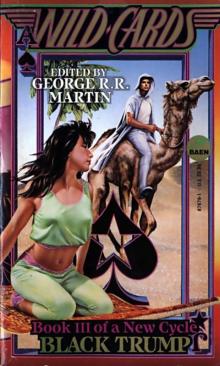 Black Trump
Black Trump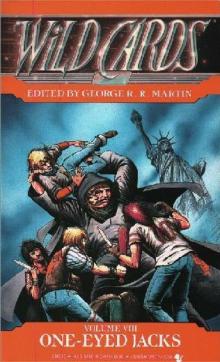 One Eyed Jacks
One Eyed Jacks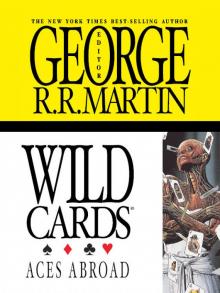 Wild Cards: Aces Abroad
Wild Cards: Aces Abroad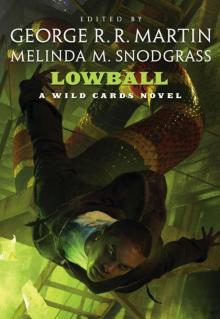 Lowball: A Wild Cards Novel
Lowball: A Wild Cards Novel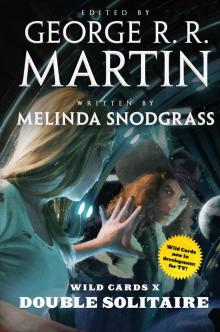 Double Solitaire (2019 Edition)
Double Solitaire (2019 Edition)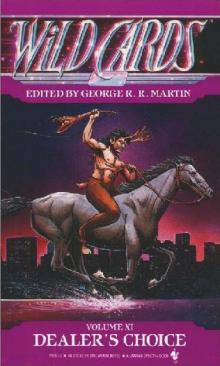 Dealer's Choice
Dealer's Choice Ace in the Hole
Ace in the Hole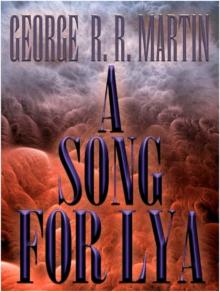 A Song for Lya: And Other Stories
A Song for Lya: And Other Stories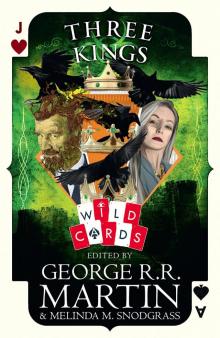 Three Kings
Three Kings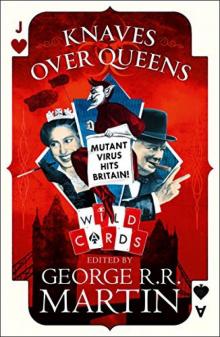 Knaves Over Queens
Knaves Over Queens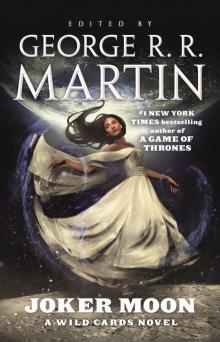 Joker Moon
Joker Moon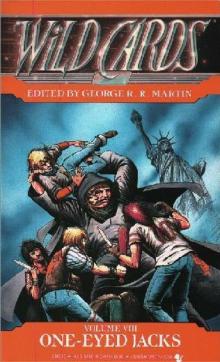 One Eyed Jacks wc-8
One Eyed Jacks wc-8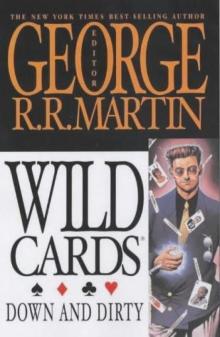 Down And Dirty wc-5
Down And Dirty wc-5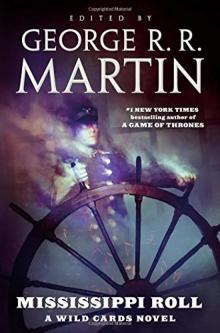 Mississippi Roll_A Wild Cards Novel
Mississippi Roll_A Wild Cards Novel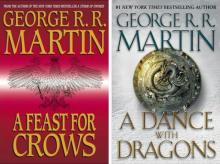 A Feast for Dragons
A Feast for Dragons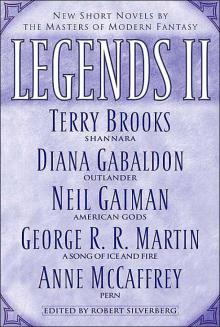 The Sworn Sword ttodae-2
The Sworn Sword ttodae-2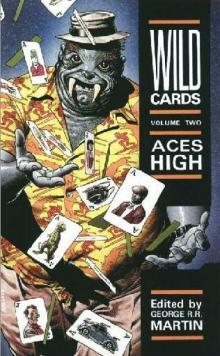 Aces High wc-2
Aces High wc-2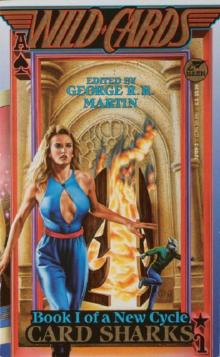 Wild Cards 13 : Card Sharks
Wild Cards 13 : Card Sharks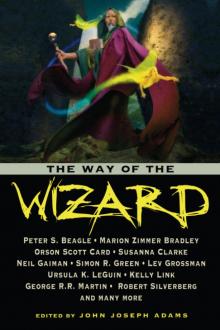 Way of the Wizard
Way of the Wizard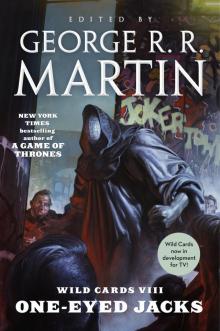 Wild Cards VIII: One-Eyed Jacks
Wild Cards VIII: One-Eyed Jacks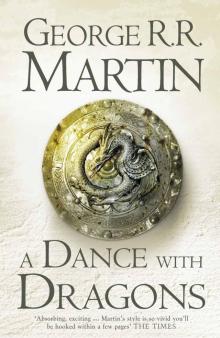 A Dance With Dragons: Book 5 of A Song of Ice and Fire (Song of Ice & Fire 5)
A Dance With Dragons: Book 5 of A Song of Ice and Fire (Song of Ice & Fire 5)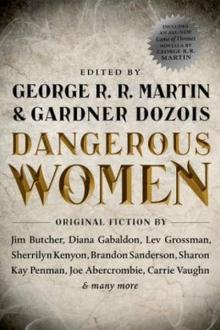 The Princess and The Queen, Or, The Blacks and The Greens (a song of ice and fire)
The Princess and The Queen, Or, The Blacks and The Greens (a song of ice and fire)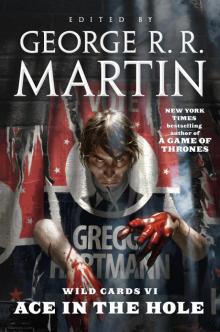 Wild Cards VI--Ace in the Hole
Wild Cards VI--Ace in the Hole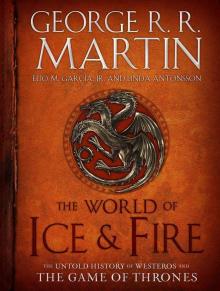 The World of Ice & Fire: The Untold History of Westeros and the Game of Thrones (A Song of Ice and Fire)
The World of Ice & Fire: The Untold History of Westeros and the Game of Thrones (A Song of Ice and Fire)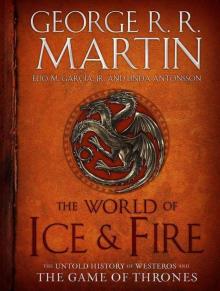 The World of Ice & Fire: The Untold History of Westeros and the Game of Thrones
The World of Ice & Fire: The Untold History of Westeros and the Game of Thrones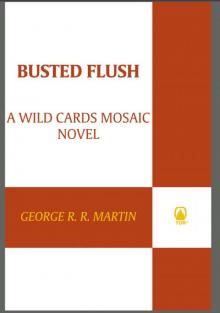 Busted Flush wc-19
Busted Flush wc-19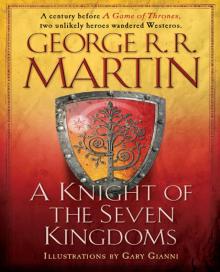 A Knight of the Seven Kingdoms
A Knight of the Seven Kingdoms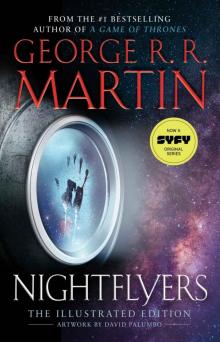 Nightflyers: The Illustrated Edition
Nightflyers: The Illustrated Edition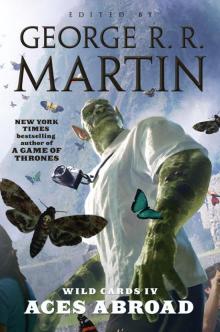 Wild Cards IV
Wild Cards IV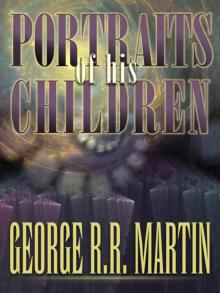 Portraits of His Children
Portraits of His Children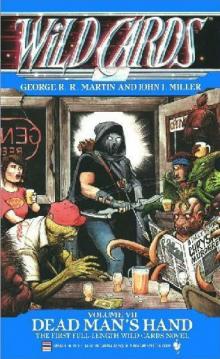 Dead Mans Hand wc-7
Dead Mans Hand wc-7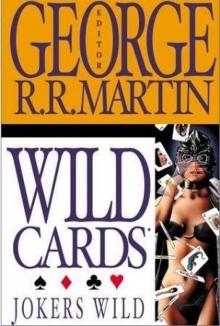 Jokers Wild wc-3
Jokers Wild wc-3 The Lonely Songs of Laren Dorr
The Lonely Songs of Laren Dorr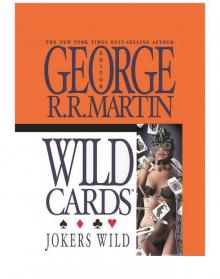 Wild Cards III: Jokers Wild
Wild Cards III: Jokers Wild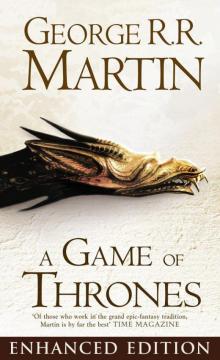 A Game of Thrones Enhanced Edition
A Game of Thrones Enhanced Edition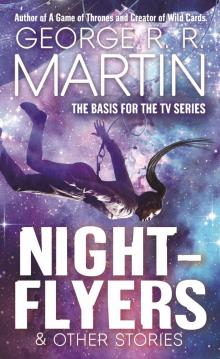 Nightflyers & Other Stories
Nightflyers & Other Stories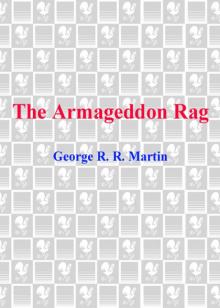 Armageddon Rag
Armageddon Rag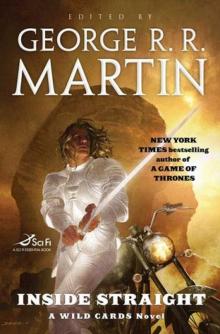 Wild Cards: Inside Straight
Wild Cards: Inside Straight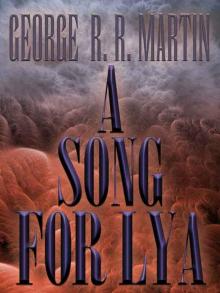 A Song for Lya
A Song for Lya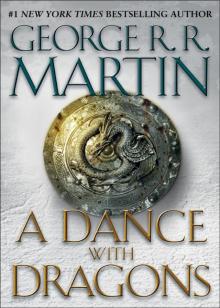 A Dance with Dragons: A Song of Ice and Fire: Book Five
A Dance with Dragons: A Song of Ice and Fire: Book Five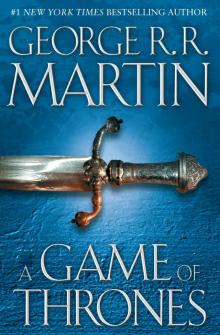 Song of Fire & Ice 01 - A Game of Thrones
Song of Fire & Ice 01 - A Game of Thrones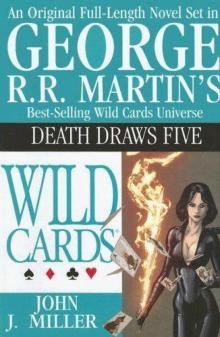 Death Draws Five wc-17
Death Draws Five wc-17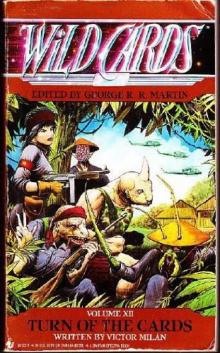 Turn of the Cards w-12
Turn of the Cards w-12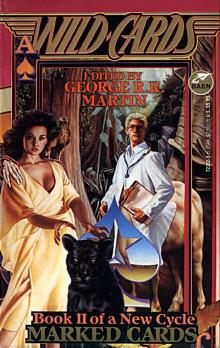 Wild Cards 14 - Marked Cards
Wild Cards 14 - Marked Cards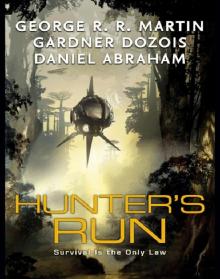 Hunter's Run
Hunter's Run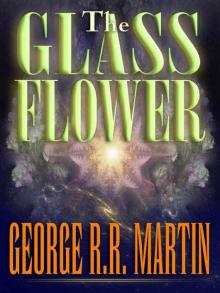 The Glass Flower
The Glass Flower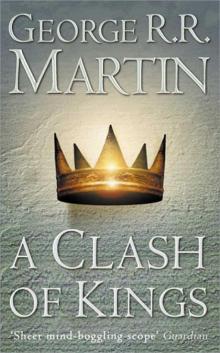 A Clash of Kings asoiaf-2
A Clash of Kings asoiaf-2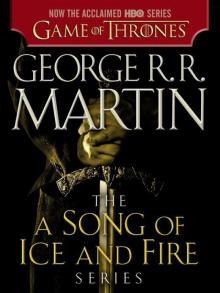 A Game of Thrones 5-Book Bundle: A Song of Ice and Fire Series: A Game of Thrones, A Clash of Kings, A Storm of Swords, A Feast for Crows, and A Dance with Dragons (Song of Ice & Fire)
A Game of Thrones 5-Book Bundle: A Song of Ice and Fire Series: A Game of Thrones, A Clash of Kings, A Storm of Swords, A Feast for Crows, and A Dance with Dragons (Song of Ice & Fire)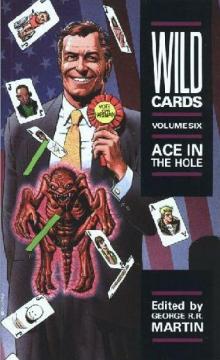 Ace In The Hole wc-6
Ace In The Hole wc-6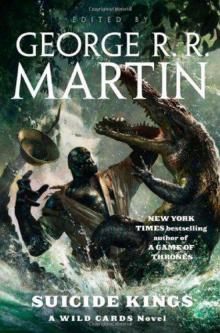 Suicide Kings wc-20
Suicide Kings wc-20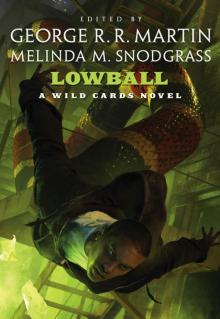 Lowball
Lowball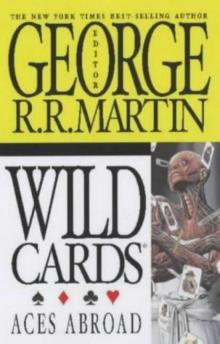 Aces Abroad wc-4
Aces Abroad wc-4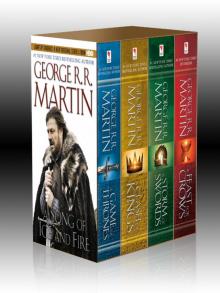 George R. R. Martin's a Game of Thrones 4-Book Bundle
George R. R. Martin's a Game of Thrones 4-Book Bundle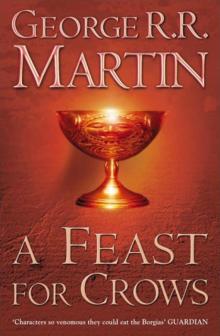 A Feast for Crows asoiaf-4
A Feast for Crows asoiaf-4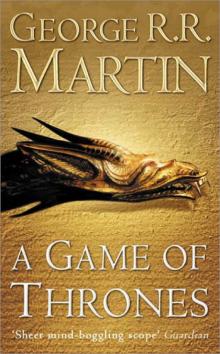 A Game of Thrones asoiaf-1
A Game of Thrones asoiaf-1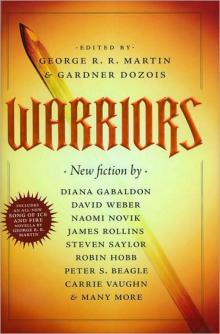 The Mystery Knight ttodae-3
The Mystery Knight ttodae-3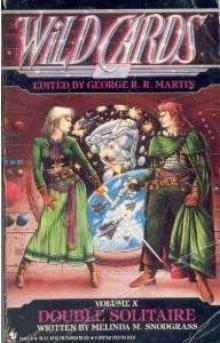 Double Solitaire w-10
Double Solitaire w-10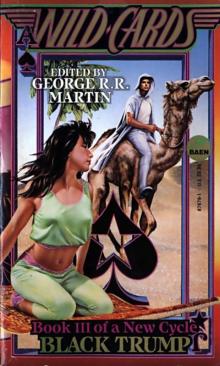 Wild Cards 15 - Black Trump
Wild Cards 15 - Black Trump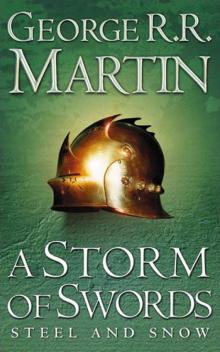 A Storm of Swords asoiaf-3
A Storm of Swords asoiaf-3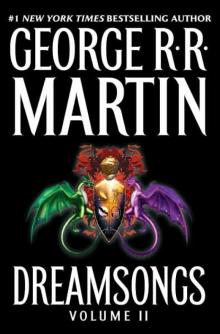 The Hedge Knight ttodae-1
The Hedge Knight ttodae-1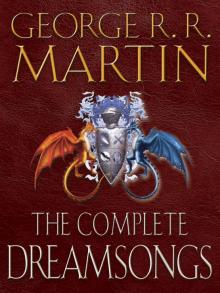 Dreamsongs 2-Book Bundle
Dreamsongs 2-Book Bundle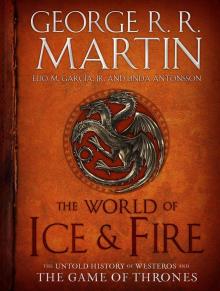 The World of Ice & Fire
The World of Ice & Fire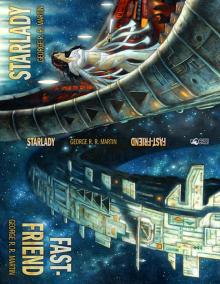 Starlady & Fast-Friend
Starlady & Fast-Friend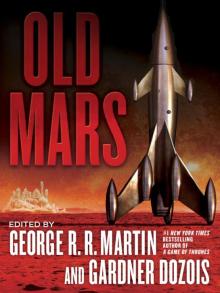 Old Mars
Old Mars Fantasy For Good: A Charitable Anthology
Fantasy For Good: A Charitable Anthology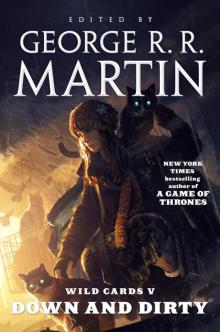 Wild Cards V
Wild Cards V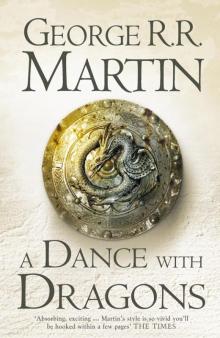 A Dance with Dragons asoiaf-5
A Dance with Dragons asoiaf-5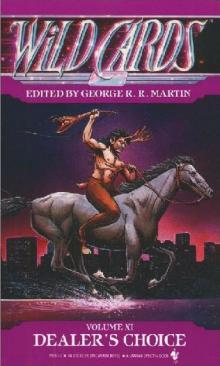 Dealer's Choice w-11
Dealer's Choice w-11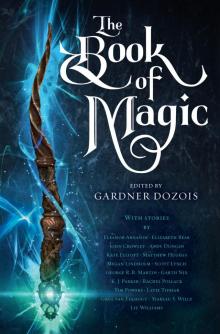 The Book of Magic
The Book of Magic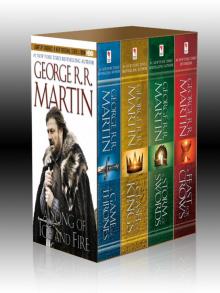 A Game of Thrones 4-Book Bundle
A Game of Thrones 4-Book Bundle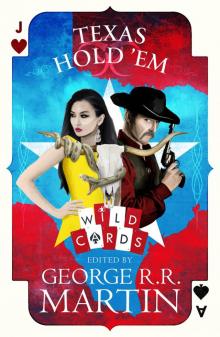 Texas Hold 'Em
Texas Hold 'Em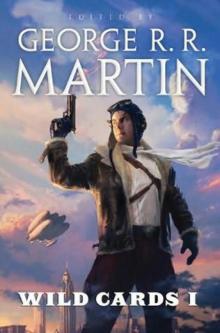 Wildcards wc-1
Wildcards wc-1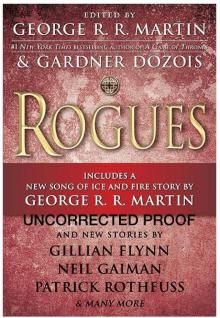 Rogues
Rogues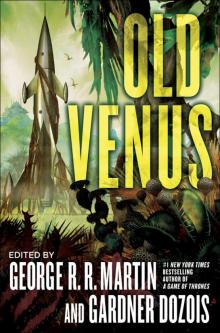 Old Venus
Old Venus